Day 1 (or is it day 2?)
For the last twenty-four hours 32 devoted pilgrims have hopped shuttles and planes making our way from Augusta to Athens Greece. In between we have experienced a three and half layover in Paris, which might sound extravagant but trust me this part of the airport looked as though it was designed by an architect trained in the Soviet Union. Everyone has kept a great attitude and a positive sense of adventure. We had a total of three flights to catch: Atlanta to Paris; Paris to Athens; and a short flight to Thessaloniki (in the Bible we know it as Thessalonica). I guess we should not complain since the first-century Christian travelers had to make the arduous journey on foot and small boats taking several months at a time.
When we arrived at our hotel in Thessalonika they had a lovely dinner waiting on us, although it was already fairly late – 9:50 PM. I need to add, however, that many in Greece do not take their supper until about nine in the evening.
Tomorrow begins our first full day of touring starting with the village of Philippi.
Day 2
Even though we just spent the last day and half traveling nearly half way around the world, we were up bright and early with a wake-up call at 6:15 AM. Amy chose to ignore and told me to just tell her about breakfast when it was over. I had already been up for about a half hour because I do not want to be late for a meal, even if we did just eat a few hours ago! I was a little worried when I went to the hotel lobby and was the only one there, but in a few minutes our travelers came trickling in. The breakfast buffet was of mostly traditional Greek food – salmon, cheeses (lots of feta), pastries, almond and sesame dishes as well as bacon, eggs (scrambled with feta of course) and sausage. There was no worry of anyone leaving the table hungry.
By 7:45 AM we were on our bus and traveling to Philippi. The ride was a pleasant trip of nearly two hours which we divided with a brief stop for “coffee in, coffee out.” (let the reader understand) Before entering Philippi we stopped by the village of Lydia, were Paul baptized Lydia and “all of her household.” (Acts 16:15) There is a comparatively recent baptistery built beside ancient Roman ruins, all alongside a simple course of water that has been running there for thousands of years. Lydia is one of the more understated persons of interest in the times of the New Testament. She was apparently a successful business person and no doubt was one of the primary supporters of Paul’s witness to the Philippians. She is one of those that we have to thank for allowing us to read one of Paul’s most beloved epistles which include the words, “I thank my God every time I remember you.” (Philippians 1:3) We then traveled just a few more minutes to Philippi.
Let me say at the beginning, Philippi was a pleasant surprise. First, I had no idea that the Philippi of antiquity was such a large place. The archeological ruins are amazing including a theater, an agora (Roman forum), a jail, and at least one basilica. While there is not a lot of walking on these trips, there is a bit of scrambling about and steps to take, but our crew held up very well.
Our guide, Giorgia (pronounced “Georgia” which is convenient and ironic), is a very knowledgeable teacher and companion along the way. She is qualified to guide groups in French, Italian, English, as well as her native tongue which is Greek. She seemed embarrassed to confess that she only knew a little bit of Arabic! As a guide she has to entertain clients from all over the world so in the course of a career she has become conversant over many topics. On our bus ride today we have discussed politics; immigration issues; etymology (according to her it all goes back to Greek); and her favorite traditional dishes (mousaka by the way).
Amy noticed small monuments along the roadside that looked like small Orthodox churches. Giorgia said that these were memorials to those killed on the highway or for those who survived they commemorated gratitude.
We enjoyed lunch along the harbor of ancient Neopolis, where Paul landed when he first sailed to Macedonia. I am not sure what Paul had for lunch back then but folks in our group ate everything from fried sardines to grape leaves. Amy and I enjoyed a traditional Greek salad of tomatoes, onions, cucumbers and a large slice of feta cheese. We split a plate of delicious calamari.
We headed back to Thessaloniki and after a full lunch the ride was pretty quiet. I was typing for this blog and it occurred to me I was not hearing a sound coming from behind me. When I turned around the only one who seemed awake was Keith who quipped, “We are going to have to have a wake-up call for dinner!”
We arrived back in town to visit the Church of St. Demetrios, who was martyred in the fourth century. The church itself is not that old – only about 1300 years, but it still retained some important frescoes and mosaics.
A few of us caught a shuttle from our hotel back to the city center to people-watch, although I think they were looking at us! We then returned back to our hotel to join the rest of the group for dinner, which was at 9 PM. The funny thing is that back home I am normally preparing for bed by nine, so I am having to make several adjustments.
As one famous Biblical writer would say to those whom he loved, “Grace and peace.”
Excursus on Philippi:
Philippi (Ancient Greek Φιλιπποι, Philippoi) is a city in eastern Macedonia, founded by Philip II in 356 BC. According to the Hellenic Ministry of Culture, Philippi is “the most important archaeological site of eastern Macedonia.” Because it was visited by Paul during his missionary journeys and later the recipient of one of Paul’s letters (Philippians), Philippi is an important site for Christians and a main stop on pilgrimage tours of Greece. The site is extensive and there are many structures of religious interest to see here.
Paul in Philippi
In 49 or 50 AD, the city was visited by the apostle Paul during his second missionary journey. According to the book of Acts, he was guided there by a vision of “a man of Macedonia” (Acts 16:9). Accompanied by Silas, Timothy, and Luke, Paul preached in Philippi. …
In another account recorded in Acts, Paul drove out an evil spirit from a slave girl who worked as a fortune teller. Her owners became angry and dragged Paul and Silas into the marketplace and complained about them before the magistrates. A crowd joined in the condemnation, and the missionaries were stripped and flogged, then thrown into prison. At midnight, however, a great earthquake came and the prison doors flew open. The jailer nearly killed himself over it, but Paul talked him out of it and converted him. The next morning, the magistrates released Paul and Silas and asked them to leave the city. (Acts 16:16-40)
Paul visited the city on two other occasions, in 56 and 57 AD. The Epistle to the Philippians dates from around 54-55 and shows the immediate impact of Paul’s preaching. The subsequent development of Christianity in Philippi is well-attested, notably by a letter from Polycarp of Smyrna addressed to the community in Philippi around 160, and by funerary inscriptions.

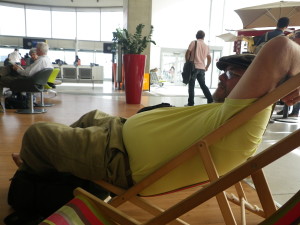
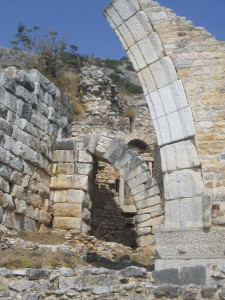
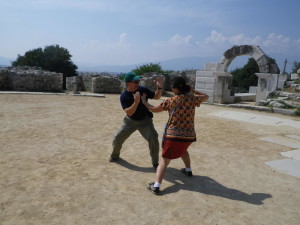
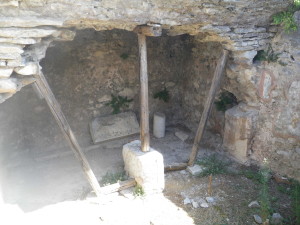
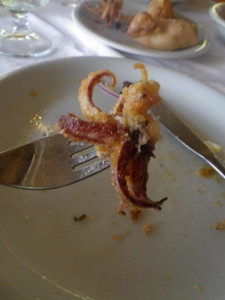
awesome post… you’ve shared very successful and effective tips… these are very helpful for all newbies… you’ve done nice job… thanks a lot for it…